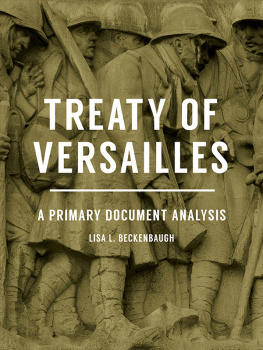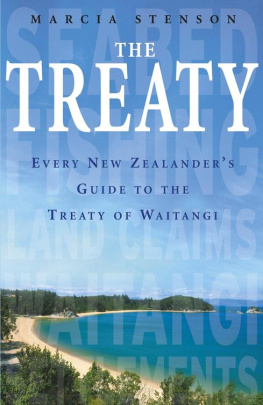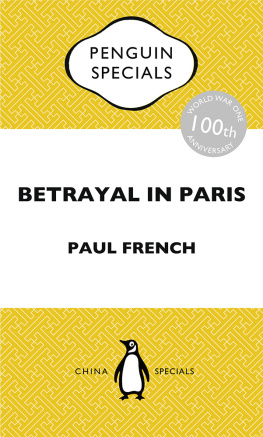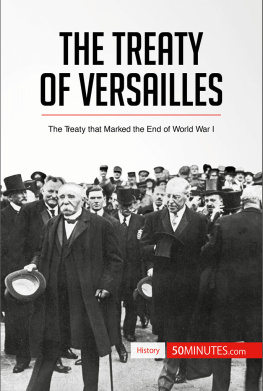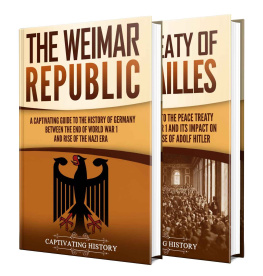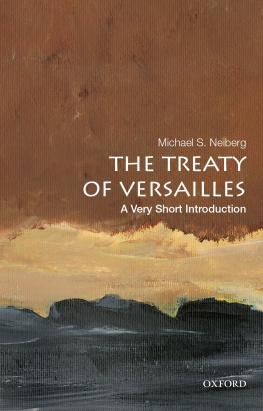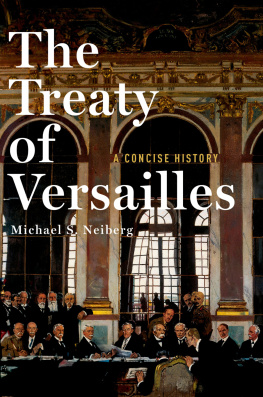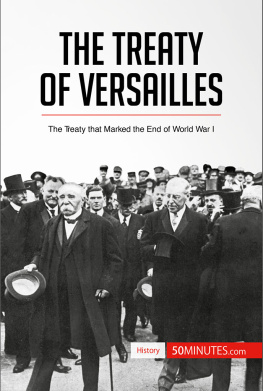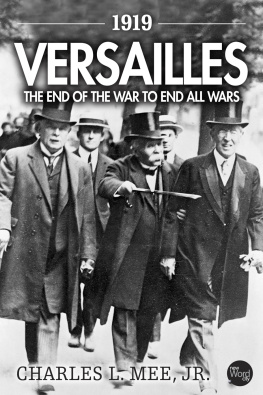About the Author and Contributors
AUTHOR
Dr. Lisa L. Beckenbaugh is an assistant professor of military and security studies at Air Universitys Air Command and Staff College. She received her masters degree from St. Cloud State University and her PhD from the University of Arkansas. Dr. Beckenbaugh has taught at a variety of undergraduate and graduate civilian institutions. She also served as the interim project lead and military analyst II for the Operational Leadership Experiences Project under the aegis of the Combat Studies Institute at Fort Leavenworth and held a postgraduate historical research fellowship at the Defense POW/Missing Personnel Office. Dr. Beckenbaughs current research is on the 1st MASH (Mobile Army Surgical Hospital), later redesignated 8209th MASH, during the Korean War.
CONTRIBUTORS
Richard C. Hall, PhD, is professor of history in the Department of History and Political Science at Georgia Southwestern State University. His research focuses primarily on early 20th-century military conflicts in the Balkans. Hall is the author of Consumed by War: European Conflict in the 20th Century (2009), Balkan Breakthrough: The Battle of Dobro Pole 1918 (2010), and Bulgarias Road to the First World War (1996). In addition, he served as editor of War in the Balkans: An Encyclopedic History from the Fall of the Ottoman Empire to the Breakup of Yugoslavia (ABC-CLIO, 2014). Hall earned his bachelors degree at Vanderbilt University and his masters degree and doctorate at the Ohio State University.
Michael S. Neiberg, PhD, is a professor of history in the Department of National Security and Strategy at the United States Army War College in Carlisle, Pennsylvania. From 2005 to 2010, he was professor of history and codirector of the Center for the Study of War and Society at the University of Southern Mississippi. He is the author of several books, including Potsdam: The End of World War II and the Remaking of Europe (2015), Dance of the Furies: Europe and the Outbreak of World War I (2011), and The Blood of Free Men: The Liberation of Paris, 1944 (2012). He received his PhD in history from Carnegie Mellon University in 1996.
Dr. Spencer C. Tucker graduated from the Virginia Military Institute and was a Fulbright scholar in France. He was a U.S. army captain and intelligence analyst in the Pentagon during the Vietnam War and then taught for 30 years at Texas Christian University before returning to his alma mater for 6 years as the holder of the John Biggs Chair of Military History. He retired from teaching in 2003. He is now senior fellow of military history at ABC-CLIO. Dr. Tucker has written or edited more than 50 books, including ABC-CLIOs award-winning World War I: The Definitive Encyclopedia and Document Collection and Wars That Changed History: 50 of the Worlds Greatest Conflicts. Among honors he has received for his publications are three Society for Military History awards for best reference work in military history (2008, 2010, 2014) and four American Library Association RUSA Outstanding Reference Source awards (2009, 2010, 2014, 2015).
Albrecht-Carrie, R. Italy at the Paris Peace Conference. New York: Columbia University Press, 1938.
Aldcroft, D. H. From Versailles to Wall Street, 19191929. London: Penguin Putnam, 1987.
Ambrosius, Lloyd E. Woodrow Wilson and the American Diplomatic Tradition: The Treaty Fight in Perspective. New York: Cambridge University Press, 1987.
Andelman, David. A Shattered Peace: Versailles 1919 and the Price We Pay Today. Hoboken, NJ: J. Wiley, 2008.
Antonius, G. The Arab Awakening: The Story of the Arab National Movement. New York: G. P. Putnams Sons, 1946.
Armstrong, H. F. Peace and Counterpeace: From Wilson to Hitler: Memoirs of Hamilton Fish Armstrong. New York: Harper & Row, 1971.
Bailey, T. A. Woodrow Wilson and the Lost Peace. Chicago: Encounter Paperbacks, 1963.
Baker, R. S. What Wilson Did at Paris. Ann Arbor: University of Michigan Library, 1919.
Bartlett, V. Behind the Scenes at the Paris Conference. London: G. Allen & Unwin, 1920.
Baruch, B. M. The Making of the Reparation and Economic Sections of the Treaty. New York: Harper & Brothers, 1920.
Bessel, R. Germany After the First World War. Oxford: Clarendon Press, 1993.
Birdsall, P. Versailles: Twenty Years After. London: Reynal & Hitchcock, 1941.
Boemeke, Manfred F., Gerald D. Feldman, and Elisabeth Glaser, eds. The Treaty of Versailles: A Reassessment After 75 years. New York: Cambridge University Press, 1998.
Bonsal, S. Suitors and Suppliants: The Little Nations at Versailles. New York: Prentice Hall, 1946.
Bunselmeyer, R. The Cost of War, 19141919: British Economic War Aims and the Origins of Reparation. Hamden, CT: Archon Books, 1975.
Burgwyn, H. J. The Legend of the Mutilated Victory: Italy, the Great War, and the Paris Peace Conference, 19151919. Westport, CT: Praeger, 1993.
Cohen, E. I. The American Revisionists: The Lessons of Intervention in World War I. Chicago and London: University of Chicago Press, 1967.
Cooper, John Milton. Breaking the Heart of the World: Woodrow Wilson and the Fight for the League of Nations. New York: Cambridge University Press, 2001.
Deak, F. Hungary at the Paris Peace Conference: The Diplomatic History of the Treaty of Trianon. New York: Columbia University Press, 1942.
Dillon, E. J. The Inside Story of the Peace Conference. New York and London: Harper & Brothers, 1920.
Dockrill, M. L., and J. D. Goold. Peace Without Promise: Britain and the Peace Conference, 19191923. Hamden, CT: Batsford, 1981.
Dunn, S., and T. G. Fraser, eds. Europe and Ethnicity: The First World War and Contemporary Ethnic Conflict. London: Routledge, 1996.
Egerton, G. W. Great Britain and the Creation of the League of Nations. Chapel Hill: University of North Carolina Press, 1978.
Elcock, H. Portrait of a Decision: The Council of Four and the Treaty of Versailles. London: Eyre Methuen, 1972.
Ewence, Hannah, and Tom Grady. Minorities and the First World War: From War to Peace. New York: Palgrave Macmillan, 2017.
Floto, I. Colonel House in Paris: A Study of American Policy at the Paris Peace Conference, 1919. Princeton, NJ: Princeton University Press, 1973.
Friedman, I. The Question of Palestine, 19141918: British-Jewish-Arab Relations. Oxford: Routledge & Kegan Paul, 1973.
Gerson, L. Woodrow Wilson and the Rebirth of Poland, 19141920: A Study in the Influence on American Policy of Minority Groups of Foreign Origin. Hamden, CT: Archon Books, 1972.
Goldstein, E. Winning the Peace: British Diplomatic Strategy, Peace Planning, and the Paris Peace Conference, 19161920. Oxford: Clarendon, 1991.
Graebner, Norman A., and Edward M. Bennett. The Versailles Treaty and Its Legacy: The Failure of the Wilsonian Vision. New York: Cambridge University Press, 2011.
Haskins, C. H., and R. H. Lord. Some Problems of the Peace Conference. Cambridge, MA: Harvard University Press, 1920.
Heater, D. National Self-Determination: Woodrow Wilson and His Legacy. New York: St. Martins Press, 1994.
Helmreich, P. C. From Paris to Sevres: The Partition of the Ottoman Empire at the Peace Conference of 191920. Columbus: Ohio State University Press, 1974.
Kent, B. The Spoils of War: The Politics, Economics, and Diplomacy of Reparations, 19181932. Oxford: Oxford University Press, 1989.
Kershaw, I. Weimar: Why Did German Democracy Fail? New York: St. Martins Press, 1990.
Keynes, John Maynard.
Next page
